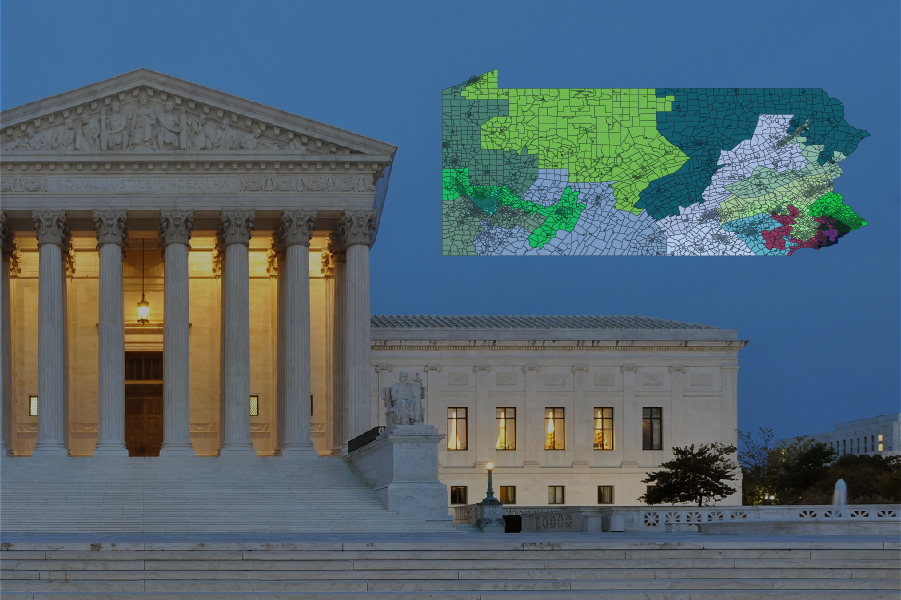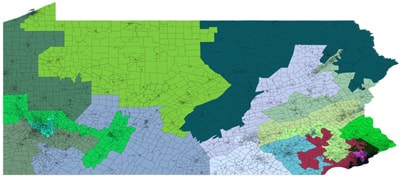
Pa. Congressional Map Declared Unconstitutional
Testimony by CMU's Pegden used math to show bias in the map
The Pennsylvania Supreme Court has declared the state's congressional map is unconstitutional, thanks in part to expert testimony given by Carnegie Mellon University Associate Professor of Mathematical Sciences Wesley Pegden.
Pegden has published a number of studies that use mathematics and computer science to address gerrymandering. His testimony focused on a paper published in the Proceedings of the National Academy of Sciences in February 2017, in which Pegden, University Professor of Mathematical Sciences Alan Frieze and the University of Pittsburgh's Maria Chikina used Markov Chains to show there was little chance that the state's congressional districts could have been drawn at random, indicating that it was highly likely the map was biased. The paper was named one of the top 100 science stories of 2017 by Discover Magazine.
"Our analysis of Pennsylvania's map, which is based on a general theorem we proved about detecting outliers using small random changes, demonstrated rigorously that the Congressional map of Pennsylvania exhibited more carefully crafted partisan bias than more than 99.99 percent of possible Congressional districtings of the state," Pegden said.
According to the court's ruling, the current maps will not be able to be used in the May 2018 primaries. Pegden also has come up with a solution for redrawing congressional district maps. He and Associate Professor of Computer Science Ariel Procaccia have mathematically proven that the "I-Cut-You-Choose" method can create a fair districting map.
Pegden's work has been cited in an amicus brief filed with the U.S. Supreme Court on the Gil v. Witford case about gerrymandering in Wisconsin.


